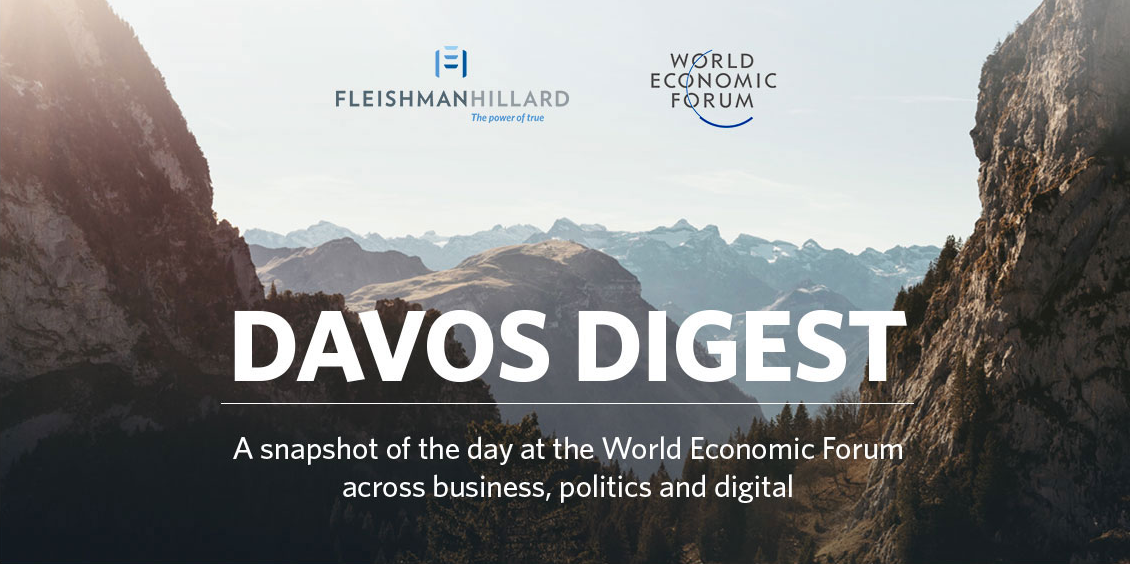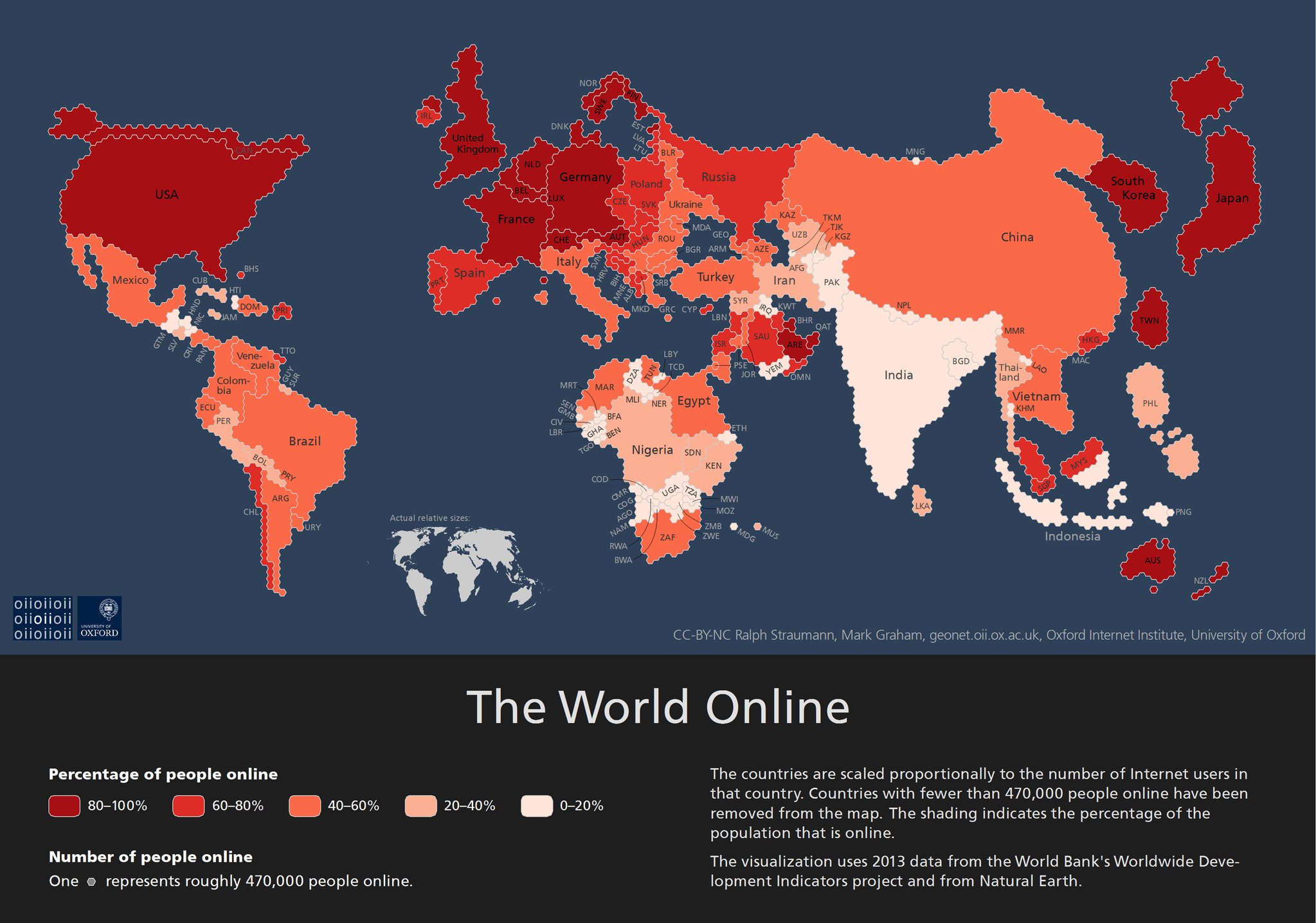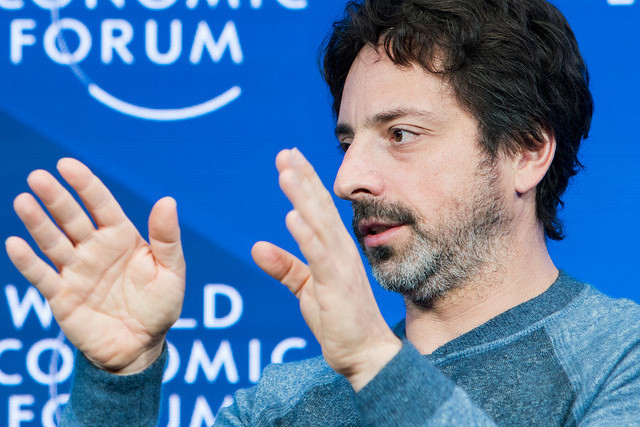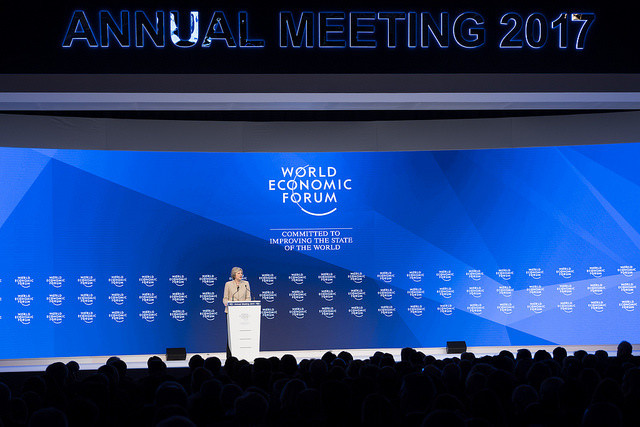Davos Digest #4

Day three and the finishing line can just about be seen in the distance.
The day’s big news was made by Theresa May who, coming hot off the heels of her recent Brexit Speech in which she shocked many in declaring her willingness to walk away from the single market, followed up with another big key note. This time it was all about one simple message: Britain is open for business.
AI and automation returned like clockwork to the agenda in the form of Sergey Brin, Google co-founder and Klaus Schwab, the brainchild of WEF, who came out to defend AI.
Jack Ma of Alibaba also made waves with his casual partnership announcement to transform the Olympic movement, no less. He also urged us to give President-elect (we’ll drop the second half of the prefix tomorrow) Trump ‘some time’, and moved to calm fears over a trade war with the U.S.
But despite efforts to allay the reservations ahead of tomorrow’s Presidential inauguration and next year’s Brexit, there was no getting away from it; the unease of the ‘Davos set’ was never far from view. And with a host of banks making dire warnings over jobs in the City of London, many asked whether policy makers were hiding from reality. Either way, one thing was for sure – there was soon to be a new kind of reality installed in the White House and this time it would be an apprentice (and billionaire politician).
Here’s our take on the highlights from day three.
Digital & Tech
In an age of 24 hr connectivity and ubiquitous mobile devices, it might be easy to assume this is the experience of everyone. But a reality check was offered on Thursday when a chart from the Oxford Internet Institute showed the true extent of digital exclusion across the globe.
With only 0-20% of the population enjoying internet access in India, large swathes of South East Asia and Africa, the question must be what will happen when these regions get truly connected? With WEF 2017 seeking answers to issues of inequality, perhaps this is the most pressing type of inequality.

And where there’s talk of the internet, there’s talk of privacy: “By the year 2025, will we see a gap between the privacy rich and the privacy poor?” This was the question posed at the namesake session on day three at WEF. A worrying 79% of the audience at yesterday’s session responded ‘yes’.
Nowadays, the desire for privacy can be treated with suspicion and it seems that “by definition, you give up privacy by being involved in something” argued Michael Neidorff of the Centene Corporation. But technology like last year’s always-listening, must-have gadget – Amazon Echo, might be an intrusion too far argued the panel. Evelyn Ruppert of Goldsmith’s University concluded that “educating our children will become a fundamental part of explaining privacy.”
When it comes to WEF, probably the number one person to be seen rubbing shoulders with is Klaus Schwab, founder of WEF. Throw in a bit of Sergey Brin, Google co-founder, and you have Davos royalty. The pair engaged in some blue-sky thinking on the future of humanity’s relationship with technology. Brin shared Schwab’s optimism in automation creating “meaningful” jobs and reducing the need for “mundane tasks”.

What’s happening at the business end?
On your marks. Get set. Go! Following May’s hard Brexit speech, in lane one of the “leave Britain” race, Stuart Gulliver, chief executive of the UK’s largest bank, HSBC, confirmed plans to move 1,000 London banking roles to Paris. “Activities specifically covered by EU legislation will move, and looking at our own numbers, that’s about 20 per cent of revenue”, Mr Gulliver said.
Other banks have joined the race in lane two, with UBS and JPMorgan Chase adding to the quota. UBS chairman, Axel Weber, suggested that about 1,000 of its 5,000 London staff could be hit by Brexit, while JPMorgan boss, Jamie Dimon, said 4,000 of his 16,000 London-based staff would be affected. On the positive side though, Goldman Sachs dismissed a German media report that half its 6,000 staff in London may move.
In lane three, the Chairman of Toyota cited “competitiveness” for the revision of its business survival on Britain’s shores. Toyota currently ships two thirds of its cars produced in the UK to the EU. On a lighter note, this might see Uber drivers find an alternative vehicle to the Prius to sneak up on waiting passengers, which isn’t entirely a bad thing.
Where will the “leave Britain” race end? Where will businesses go to? London mayor Sadiq Kahn claims Hong Kong, Singapore or New York will be the most popular destinations.
Apparently for the LGBT community, it is good for business to be “out”. And businesses should support this. However, we have moved backwards in terms of the global gender divide, according to this year’s Global Gender Gap Report, launched at WEF. It seems things have worsened during 2016, and economic gender equality will not be achieved for another 170 years. Equality for women in the labour force would add US$28 trillion to the global economy by 2025. Providing girls with just one extra year of secondary education can increase their potential income by 15-25%.
For the auto-energy sector, Toyota and four of its biggest car-making peers (BMW, Daimler, Honda and Hyundai) join Royal Dutch Shell and Total SA in a US$10.7 billion deal in hydrogen-related products within five years. The wager demonstrates batteries aren’t the only way to reduce pollution from cars, homes and utilities that are contributing to climate change.
Bill Gates launched the snappily titled ‘Coalition for Epidemic Preparedness Innovations’ (Cepi). The £460m initial investment for the Oslo based coalition intends to cut vaccine development time from 12 years to one.

Planet of the elites: Ideas, Challenges and Leadership
Day three in Davos slid the tentative geopolitical landscape under a microscope. Delegates heard about the new global role Britain will forge in the world, the transformation of the India and Russia’s rise to prominence once again.
UK Prime Minister Theresa May kicked off the day with a bold message to the global elite: ‘the clock has run out on globalisation’, she told the packed out central hall. Noting the dangers of extremism on both the left and the right, this was not a conciliatory and gregarious articulation, but a warning.
Theresa May’s address was the first proper insight for world leaders after delivering a clearer plan on Brexit. May’s priority is getting the country out of the EU in the most rapid way possible. There will be pain; pocket pain. Britain will leave the single market and the customs union, leaving it to be able to negotiate trade deals with third-party economies.
Her new “economic model” could see Britain turn into a tax haven if the EU does not play nice. That said, May is slowly creating issues with businesses already in the UK. Starting from the 1st April, business rates are to rise steeply (up to 50%), which will deter retailers from expanding in the UK.

All the while, UK Chancellor – ‘spreadsheet Phil’ Hammond – sought to assuage concerns among investors and the financial community that the City of London would remain the beating heart of Europe’s financial system. He told business leaders that the “fog of Brexit” was beginning to lift.
Whilst the West is indulging in a period of reflection, the Russian presence is as ubiquitous as ever. A panel on Russia in the world heard from former members of the Russian government, as well as diplomats and industry experts. In a moment of madness, the panel offered a great vision of the future; one of cooperation on matters of security and foreign affairs. Whatever next?
On the other side of the world in the sub-continent, India is undergoing an unprecedented transformation. In November their leader spoke and a programme of reform begun that sought to wipe out 86% of India’s cash overnight. A Minister of the Indian Government, Nirmala Sitharaman, told the room the Modi government “owed” demonetisation to the nation in order to eradicate corruption.
#WEF2017 is trending, but who is cutting through the noise?
This year we’ve noticed an even greater surge in media partnerships. GE is working with CNBC to explore the future of digital disruption, while the Astana Kazakhstan Expo 2017 has also partnered with the broadcaster to showcase its work in helping shape the future of energy.
CNN, among other deals, has secured a sponsorship agreement with Brand South Africa, with the organisation promoting inward investment into the country with a ‘Made in South Africa’ digital content hub.
And the FT has undertaken a raft of activity with Citi, which will sponsored an FT breakfast forum, chaired by chief foreign affairs commentator Gideon Rachman, as well as an FT dinner featuring a conversation between chief economics commentator Martin Wolf and Christine Lagarde, head of the IMF.
Late last year, General Motors were one of a number of companies to be trolled by Trump. Yesterday they were at Davos discussing how they think you should deal with him – in a measured way. An interesting change of tone now that business has seen the power of a Trump late night tweet to shift markets (and share prices).
What’s happening today?
- Today will kick off with on the subject of cyber war, but has one already begun? Panelists will include President Obama’s National Security Advisor and the CEO of Foreign Policy magazine. Metaphorically alongside them will be the elephants in the room, Donald Trump and Vladimir Putin.
- Brexit will continue to be a hot topic with UK Chancellor Phillip Hammond and ex-Italian PM Mario Monti, among others, exploring what the future holds for the UK’s relationship with EU. Investment strategies and immigration will be some of the key points. Once again, expect markets to be erratic.
- Celeb Watch: 2016 Formula 1 World Champion Nico Rosberg will be discussing how to get to the top of your game, and when to apply the brakes… (Not when Lewis Hamilton is nearby, we’d imagine!)
- The summit will end the way it began, with the fourth industrial revolution dominating conversation. Driverless cars, the hospital of tomorrow, whether data is the new oil and an exchange with MIT Media Lab CEO Joichi Ito are some of the exciting events taking place today.
See more information on the agenda here: https://www.weforum.org/events/world-economic-forum-annual-meeting-2017/programme
Find Out More
-
Platinum CMS Award
March 13, 2024
-
Changing Communications Tack at Mobile World Congress
February 21, 2024


